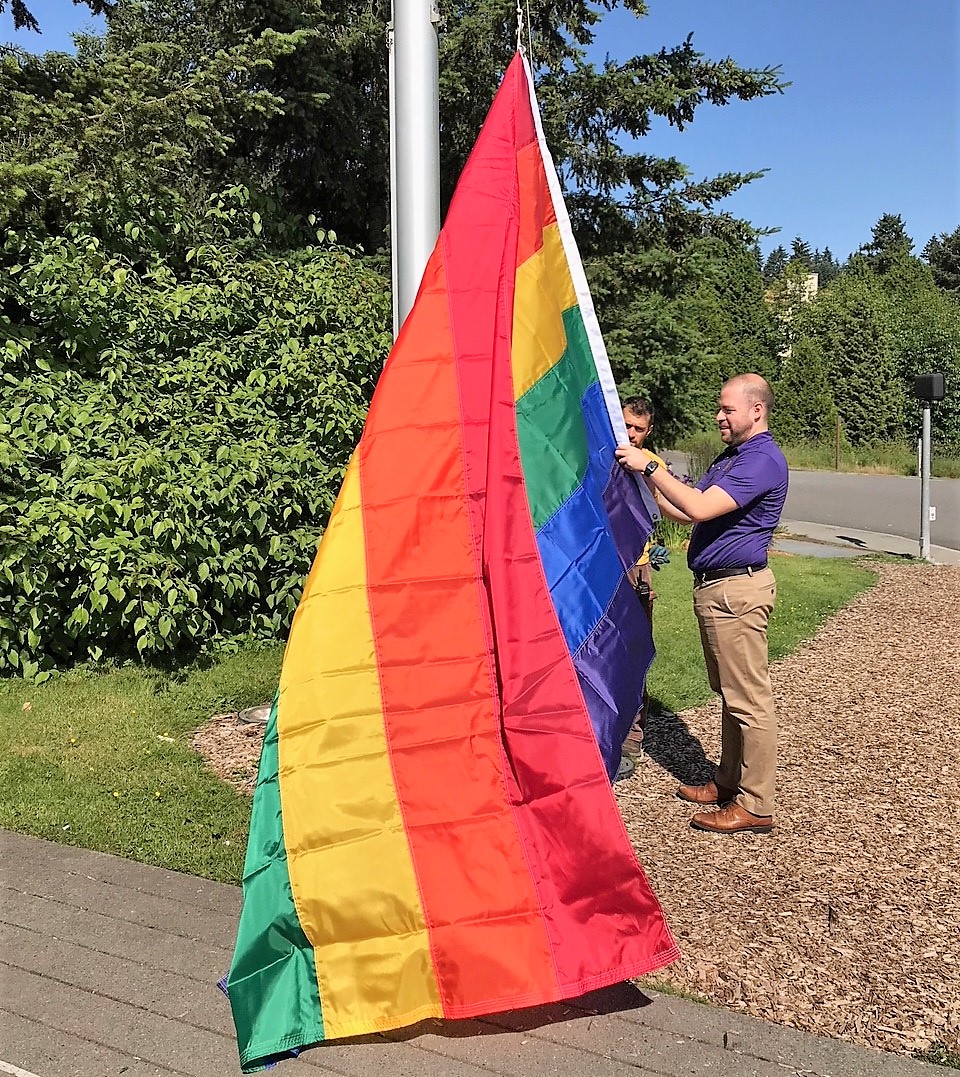By Zachary Nelson
This year, for the first time, all three University of Washington campuses raised the gay pride flag in honor of Pride Month as a symbolic gesture of acceptance and support for LGBTQIA students, staff, faculty and alumni. The flag raising took place on the UW Bothell campus at 10 a.m. on Monday, June 18.

“The Pulse Nightclub shooting was only two years ago, the hatred is still out there,” said Miguel Macias, the director of UW Bothell’s student diversity center. Macias was referring to one of the deadliest shootings in U.S. history. “Having this flag on our campuses communicates to students that they are in a safe, accepting space. They can breathe a little easier. Students can see in a very literal way that we accept them.”
The UW medical centers have been flying the pride flag every June since 2015. In 2017, the University of Washington raised the flag for one day.
“When raising the flag during Pride week was suggested to us it was immediately approved unanimously by UW leadership,” said Wayne Au, UW Bothell interim dean of diversity & equity and chief diversity officer. “We are fostering a culture of acceptance on campus. We can do this symbolically with the flag, but we can also create systemic change, such as the way we express our gender pronouns at meetings,” Au said.
Another example of systemic change is a new feature on the Husky ID card that allows students, staff and faculty to use their preferred name. The name also goes into the UW online system, so in classes students can be identified based on their preference. “Allowing students to choose their own name fosters inclusivity, autonomy and self-authorship,” said Macias.
Students aren’t the only ones in the UW Bothell community who feel empowered by the flag. “When I see that UW Bothell is raising the pride flag, it makes me proud to be a staff person working here,” said Ariana Chini, program manager at the student diversity center. “I appreciate being valued for all I am. Intersectionality is very important to me.”
Intersectionality is defined as the ability to belong to more than one social group at a time. Chini, for example, identifies as a queer Muslim woman of color.
Macias hopes that the pride flag can contribute to ongoing dialogue about diversity on campus. “When students, staff and faculty see the flag, I hope they are empowered to claim their own identity” said Macias. “No matter how they identify, they should feel free to be their authentic selves.”



